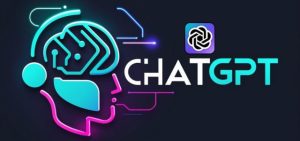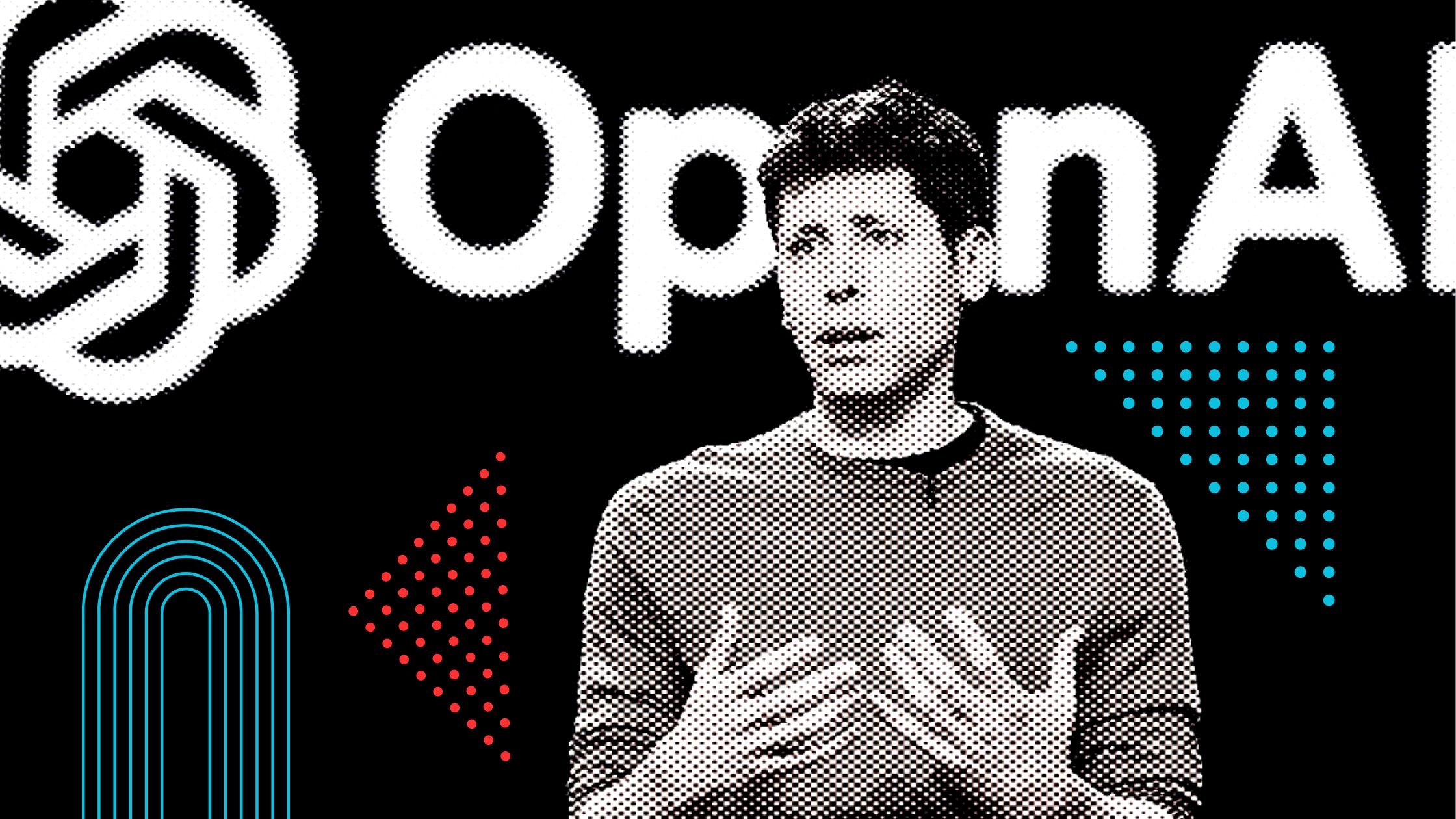There’s nothing more deflating than pouring hours into a resume that never gets a response.
You tweak the formatting, choose the right verbs, trim it down to one page, only to watch it disappear into the hiring void. Maybe you’ve been there: staring at a blinking cursor, second-guessing whether to list that short-term job, wondering if your GPA still matters, questioning if any of it actually does.
It’s the unspoken truth of modern careers: resumes are broken.
They’re meant to summarize who you are, but more often, they strip you down as if they make no sense at all. They rarely capture your grit, curiosity, or the fact that you learn fast and deliver results. And worst of all? Everyone else has one too. So, how do you stand out?
That’s exactly the question Alexandr Wang never bothered asking. Instead of trying to out-resume his peers at MIT, he left the entire system behind.
At 19, Wang dropped out of one of the most prestigious universities in the world. No diploma, no formal plan; just an obsession with solving a frustrating problem he’d seen during a summer internship. While working with a defense contractor, he noticed that AI training data was being labeled manually, slowly, and at scale. It was messy, inefficient, and holding back progress. Most interns might’ve taken notes and gone back to class.
Wang built a company instead.
That company, Scale AI, is now worth over $14 billion. And when Meta recently wanted someone to lead its boldest AI moonshot yet, its Superintelligence Lab, they didn’t ask for a résumé. They didn’t ask for a degree. They asked for Wang.
Why?
Because in the new economy, the proof you build matters more than the paper you present.
Forget the polished CVs and credential lists. Meta made a multi-billion-dollar bet on someone who doesn’t check traditional boxes but has a track record of solving high-stakes problems. That’s not luck. That’s the new blueprint.
Wang’s journey isn’t just impressive; it’s instructional. It reminds us that the old gatekeepers are losing relevance. In their place? Builders. Problem-solvers. People who do the work, not just list it.
So if you’ve ever felt like you’re more than your resume, or that your potential isn’t coming through on paper, this story’s for you.
Let’s unpack what really got Alexandr Wang hired by Meta, and how you can use that same edge to build your path without waiting for permission.
What Meta Really Bought
On the surface, the headline was simple: Meta hires Alexandr Wang to lead its new Superintelligence Lab. But beneath the headline lies a deeper question most people skipped past—why him?
Meta didn’t just buy talent. It bought proof.
Zuckerberg’s empire is betting billions on AI. From generative models to next-gen assistants, Meta needs more than flashy demos. It needs foundational infrastructure: AI that doesn’t just impress in a lab but performs at global scale. For that, it needed someone who doesn’t just think big but builds smart and fast. Alexandr Wang fit that profile, not because of a pedigree, but because of a pattern: he’s proven, again and again, that he can solve hard problems that matter.
No Fluff. Just Function.
When Wang started Scale AI, he wasn’t trying to chase hype. He noticed that most AI models struggled with one core issue: bad training data. The labeling process was slow, error-prone, and expensive. So he built a platform that combined software automation with high-quality human input, helping companies—from startups to the U.S. government—train their models with reliable, large-scale data.
That’s not glamorous work. It doesn’t sound like a TED Talk or a unicorn pitch. But it’s vital. The better the data, the better the model. And Wang understood that early. He scaled a solution before most people recognized the problem.
This is what Meta saw: someone who can operationalize complex ideas into business-critical tools.
From Startup to National Asset
It’s not just tech giants that trust Scale AI. Wang’s company has worked with government agencies including the U.S. Department of Defense, helping build AI systems for military use, surveillance, and simulations. These aren’t hobby projects. These are national security-level applications, where mistakes have real-world consequences.
To operate in that space at 20 years old? That’s not normal. That’s trust built from delivering, not talking.
So when Meta announced its new Superintelligence Lab, aiming to leapfrog OpenAI, Google DeepMind, and others, they didn’t want a figurehead. They needed a builder-operator hybrid—someone with elite vision and execution. Wang’s experience building Scale from zero to $14 billion made him the obvious choice.
What the Resume Wouldn’t Show
Here’s the irony: if you looked at Wang’s resume at 18 or 19, it wouldn’t have impressed most hiring managers.
- No college degree
- No previous company experience
- No traditional credentials
But what he had instead was priceless: momentum and proof of execution. He wasn’t writing goals in his notebook. He was solving million-dollar problems in real time.
And that’s the shift modern companies like Meta are starting to embrace. Resumes tell you where someone has been. Wang’s body of work showed where he’s going and what he’s capable of building next.
The $14.3 Billion Lesson
According to Fortune, the deal includes not only leadership of Meta’s new Superintelligence Lab but also a long-term contract worth at least $500 million per year over five years for Scale AI data services, amounting to a multi-billion-dollar relationship. That’s not a signing bonus; it’s Meta saying: “We’re buying both your brain and the system you built.”
Think about that.
In a job market where most people are optimizing for keywords to beat resume scanners, Wang built a business that made him unignorable. He didn’t wait for permission. He built leverage. And now he’s leading one of the most important projects in Meta’s history.
The Myth of the Perfect Career Path (and How Wang Broke It)
We’re told from an early age that success has a map:
Go to a top school.
Get a degree.
Land a job.
Work your way up.
That path isn’t just encouraged; it’s expected. Deviate from it, and you risk being labeled unqualified or reckless. But Alexandr Wang didn’t just challenge that framework; he blew past it like it wasn’t even there.
Skipping the “Right” Steps
Wang enrolled at MIT, which for many would be the ultimate golden ticket. But halfway through, he made a call most wouldn’t dare: he dropped out. Not because he couldn’t hack it, but because he saw an opportunity the system wasn’t designed to support.
While most of his peers were focused on assignments and internships, Wang was focused on impact. During a summer internship with a defense contractor, he saw firsthand how slow and inefficient data labeling was in the AI training process. It wasn’t just annoying—it was a bottleneck blocking real innovation.
Most would’ve taken the safe route: finish the degree, maybe pitch the idea later. Wang didn’t wait. He dropped out and co-founded Scale AI. What started as a bold bet turned into one of the most important companies in the AI ecosystem.
This wasn’t rebellion for rebellion’s sake. It was clarity in action.
When the System Isn’t Built for Builders
Traditional career paths reward compliance: do what’s expected, don’t make waves, follow protocol. But innovation rarely works that way. Disruptive solutions often come from people who aren’t afraid to break the mold—who ask, “Why not now?”
Wang’s journey isn’t just about dropout-to-billionaire fairy tales. It’s about seeing through the illusion of safety. Staying on the “right path” might get you predictability, but not necessarily progress.
What he did differently wasn’t magical; it was mindset:
- He optimized for momentum, not perfection
- He built solutions, not just resumes
- He backed himself when no institution had stamped its approval
It’s not that the traditional path is broken. It’s that it’s not the only one. And for many, especially those building in fast-moving spaces like AI, it’s simply too slow.
The Resume Trap
Here’s the trap many people fall into: thinking the perfect career comes from collecting credentials like badges. But credentials don’t build products. They don’t attract users, fix bugs, or raise funding. Execution does.
Wang’s story is a living case study in that truth. By the time most 20-somethings were polishing their LinkedIn profiles, he was scaling a company that powered AI for Tesla, OpenAI, and the U.S. government.
And that’s why Meta came calling. Not because of what school he went to. But because he proved that he could deliver at scale, under pressure, without permission, and with vision.
What This Means for You
Even if you’re not launching an AI company, the takeaway is universal: the perfect career path isn’t real. It’s a myth propped up by institutions that profit from compliance. But real momentum—real opportunity—comes from choosing action over approval.
You don’t have to wait to be picked. You can start building your signal today. That could be:
- Publishing projects on GitHub
- Writing insights on Medium or LinkedIn
- Launching a no-code product
- Freelancing with a strong personal brand
Whatever it is, stop waiting for a resume to validate your worth. As Wang proved, you don’t need permission to build something powerful.
Skills Over Credentials—What Hiring Looks Like Now
Forget the resume. For real this time.
Alexandr Wang didn’t get hired by Meta because of a fancy degree (he dropped out of MIT). He didn’t wave around an MBA, years of corporate titles, or the “perfect LinkedIn.” He got the gig because of one thing: proof of skill.
And here’s the kicker—this is becoming the new norm, not the exception.
Why Credentials Are Losing Power
For decades, hiring was about checkboxes. Where’d you go to school? What title did you hold? How long did you stay?
But companies like Meta, Stripe, Tesla, and even legacy firms are realizing something harsh: resumes lie. Or at best, they leave out the most important stuff.
- A 4.0 GPA doesn’t mean you can solve real-world problems.
- A senior title doesn’t guarantee you lead with impact.
- A polished resume says nothing about your work ethic, creativity, or speed.
This is where Wang stood out. He didn’t just say he could build something groundbreaking. He showed it through Scale AI, a company serving the likes of OpenAI and the U.S. Department of Defense.
His track record was his resume.
Meta’s Bet: Substance Over Paper
When Meta made the move to hire Wang to lead their superintelligence division, they weren’t shopping for a polished executive. They were looking for a builder. Someone who had proven they could ship complex AI products at scale, lead small teams with outsized output, and think faster than the next wave of disruption.
That’s why Meta didn’t care about his age, his dropout status, or how many degrees were (or weren’t) on his wall.
Meta didn’t hire Wang for credentials. They hired him to build and lead. Reuters confirms the $14.3 billion deal was driven by the need for Wang’s leadership in their new AI Superintelligence unit—not just the company’s data assets. And the Financial Times refers to him as a “wartime CEO” capable of stepping into one of the most ambitious AI efforts in recent tech history.
Finance, Career, and Wealth Implications
Let’s be clear: Alexandr Wang’s rise isn’t just a career story. It’s a financial blueprint.
When Wang turned down the traditional route (a stable MIT degree, a corporate job) and bet on a scrappy AI startup instead, he made one critical financial decision—he chose ownership over safety. Most people chase salary. Wang chased equity. That’s why he’s a billionaire at 28.
So, what does that mean for you?
It means the real long-term wealth is in building, not just earning.
That doesn’t mean you need to launch a tech startup. But it does mean rethinking how you spend your time, energy, and learning. Do you treat your skills like an asset? Are you compounding your expertise the way you’d grow a stock portfolio? Are you building leverage in your field, or just clocking hours?
Look at career changers who quietly made the shift:
- A corporate marketer who built a Shopify theme side hustle and turned it into a six-figure productized business
- A stay-at-home mom who learned copywriting and now earns $10K+ months from client retainers
- A community college student who built tiny AI-powered tools on Gumroad, making more than her professors
These aren’t viral unicorn stories. They’re real people who learned one lesson: proof beats paper, and ownership beats titles.
Wang’s story is a reminder that no one’s coming to hand you permission. The sooner you invest in building things that last—skills, systems, audience, equity—the sooner your money works for you.
How to Build Proof Over Paper
Forget obsessing over your resume. You need receipts.
If Alexandr Wang’s hiring by Meta taught us anything, it’s that projects speak louder than bullet points. Here’s how to build your portfolio of proof:
Step 1: Pick a Problem You Care About
Whether it’s a portfolio site, GitHub repo, Notion doc, or YouTube channel—show what you’ve built. Can you write? Design? Code? Strategize? Market? Don’t say it. Prove it. Start small. Is there a frustrating process at work? A tool you wish existed? A niche you know better than anyone? That’s your in.
Step 2: Build or Create
You don’t need to code. Use no-code tools like Carrd, Notion, Tally, or Canva. Write guides. Record walkthroughs. Make simple demos. Even a well-done Google Doc with a clear framework can land work.
Tip: Use AI like ChatGPT or Gemini to speed up drafts or testing ideas.
Step 3: Show Your Work
Create a public home for your proof:
- A Notion site with case studies
- A Gumroad page with product launches
- A Twitter/LinkedIn thread documenting the build
People trust what they can see. Keep it scrappy, but don’t keep it secret.
Step 4: Pitch With Confidence
Use what you’ve built as your application. When reaching out to a company or client, say:
“Instead of sending a resume, I made this to show what I can do for you.”
That’s the kind of line that stops busy people in their tracks.
Step 5: Iterate Fast
Your first proof-of-work doesn’t need to go viral. You’re playing a volume game. Stack small wins. Each project gets better. Each pitch hits harder.
Remember: in the new economy, your work is your reputation. Don’t polish your LinkedIn—build something real.
Final Word
You don’t need to be a tech genius, a dropout, or a founder to follow Alexandr Wang’s lead. You just need to bet on yourself with work that speaks for itself.
Start with one project. One pain point. One proof-of-skill that lives outside your resume. Whether it’s a tool, a guide, a visual, or a microservice, it matters. You build confidence by building. That’s how careers and fortunes are made.
- Graphic Design for Beginners: Best Tools & Tips to Start in 2026 - February 22, 2026
- How to Start a Blog in 2026 and Turn It Into a Steady Income Stream - November 10, 2025
- 2026: The Business Sectors Creating the Next Wave of Millionaires—How to Tap into - November 6, 2025








